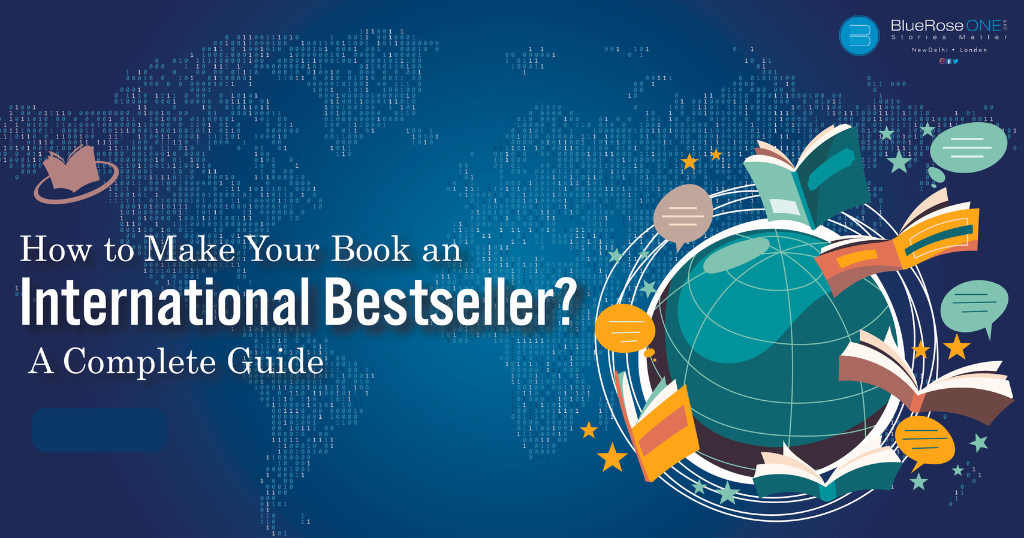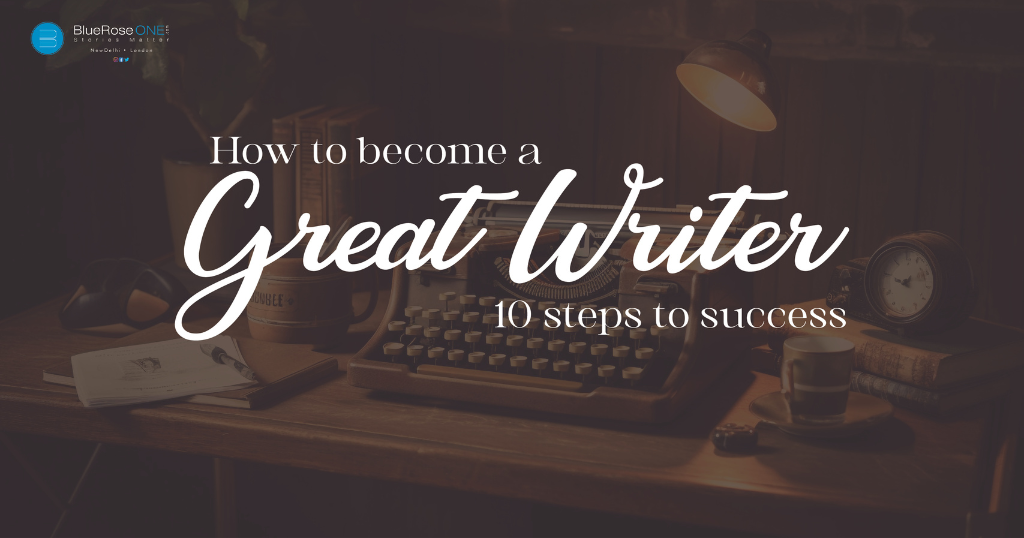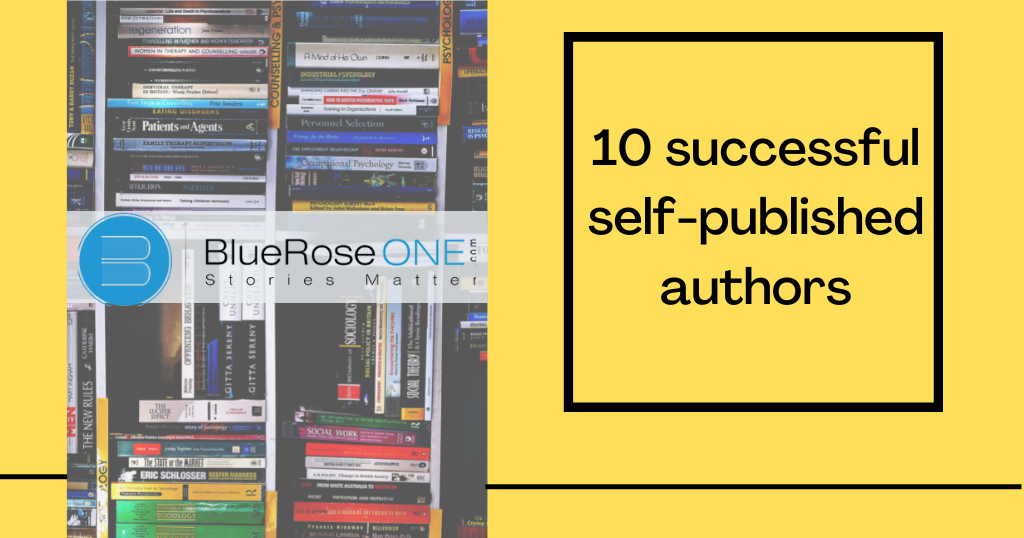
A Complete Guide on How to Make Your Book an International Bestseller
The desire of becoming an international bestseller is a beacon of success for both aspiring and experienced authors. It’s not only about selling books; it’s about leaving a lasting impression and connecting with people all across the world. Read: Facebook Book Marketing: 7 Steps on How to Promote Your Book on Facebook We will reveal the keys of turning your book into a worldwide bestseller in this detailed handbook. We will provide you with the skills and information you need to make your literary aspirations a reality, from knowing the process to efficient marketing methods. How Does a Book Become an International Bestseller? The journey to becoming an international bestseller is a multifaceted one. It typically involves several key elements: You may also like: How to make book design more appealing to the reader How Many Books Do You Need to Sell to Be an International Bestseller? There’s no fixed number of books that guarantee international bestseller status since it varies depending on factors like genre, competition, and market conditions. In some cases, tens of thousands of copies may suffice, while in others, millions might be required. What’s crucial is consistent sales and positive word-of-mouth to sustain momentum. Focus on building a dedicated readership, and bestseller status will follow. How to Market Your Book Internationally? Marketing a book internationally requires a well-thought-out strategy that goes beyond just getting your work on the shelves. Successful international marketing is the linchpin to making your book a bestseller. In today’s interconnected world, a global audience is within reach, and here are some key strategies to help you achieve that international appeal. 1. Targeted online promotion In the digital age, online promotion is a powerful tool for reaching a global audience. Here are some essential aspects of this strategy: You may also read: 10 Proven Strategies for Crafting the Perfect Book Title 2. Localise your campaigns To resonate with international readers, it’s crucial to understand and respect cultural nuances and languages. Localization is the process of adapting your marketing campaigns to different regions. Here’s how you can achieve it: You may also like: List of Top 10 Famous Ravinder Singh Books of All Time 3. Engage with book bloggers. Book bloggers and reviewers hold significant sway in the literary world. They can help amplify your book’s reach and credibility. Here’s how to engage with them: You may also read: Top 10 Tony Robbins Books That Inspire Success and Change 4. International Book Fairs Participating in international book fairs and expos is a fantastic way to connect with readers, agents, and publishers from around the world. Here’s how to make the most of these events: You may also like: List of 10 Best Rabindranath Tagore Books of All Time To successfully market your book internationally, it is important to adopt a multifaceted approach. Firstly, you need to target a global audience through online promotions. You can achieve this by creating localised campaigns that respect cultural differences. Secondly, you should engage with influential book bloggers who can help generate interest and buzz around your work. Lastly, it is important to participate in international book fairs to gain recognition and potentially become a bestseller in multiple regions. It is important to note that success takes time, and consistency in marketing efforts is key to achieving international acclaim. By following these strategies, you can broaden your readership and establish your presence in the global literary market. You may also like: What is Historical Fiction? Definition, Characteristics and Impact How to Make Your Book a Bestseller on Amazon? Amazon is a global giant in the book market. To achieve bestseller status on Amazon, consider these steps: a. Kindle Direct Publishing (KDP): Kindle Direct Publishing is a self-publishing platform offered by Amazon. Using this platform, authors can publish their e-books and reach a vast global audience. Through KDP, authors can keep a significant portion of their royalties and also access Amazon’s extensive distribution network, making their work available in multiple countries. b. Categories and Keywords: It is crucial to select the appropriate book categories and include relevant keywords to increase discoverability on e-commerce platforms such as Amazon. This approach guarantees that your book will be displayed in relevant search results, making it easier for potential readers to find your work. This strategic decision helps you connect with your intended audience and improve the visibility of your book. c. Book Reviews: Encouraging genuine book reviews from readers is a critical element in building your book’s credibility and visibility. Positive reviews and ratings not only attract more readers but also influence Amazon’s algorithms, potentially boosting your book’s ranking and exposure. d. Promotions and Discounts: Discounting your e-book for a limited time can be a smart tactic to draw in more readers, particularly those who are price-sensitive. Lower prices often result in increased sales and better rankings within Amazon’s e-book categories, which can ultimately lead to greater visibility and long-term success. Becoming an international bestseller is a challenging but achievable goal for authors who are willing to put in the effort. By focusing on exceptional content, strategic marketing, and leveraging both free and cost-effective tools, you can maximise your book’s reach and impact. Read: How to Write an Engaging Introduction for Your Book: Tips and Examples Remember, success in the literary world is often a marathon, not a sprint. Keep building your audience, engaging with readers, and fine-tuning your marketing strategies. With persistence and the right approach, your book can indeed become an international bestseller, leaving a lasting mark on readers across the globe.

A complete guide on how to become a great writer
Do you aspire to be a great writer? Whether you want to create intriguing articles, tell riveting stories, or just develop your creative writing abilities, the path to becoming a proficient wordsmith is both gratifying and attainable. Writing is an art form that, like any other, demands devotion, practice, and a willingness to grow. Read: Easy Hacks to Inspire Yourself to Write a Book and Get it Published Easily. In this article, we’ll look at 10 crucial stages that will help you get started on the road to becoming a great writer. Read extensively Write regularly Define Your Purpose Study grammar and style Edit and revise Seek Feedback Read About Writing Set Goals Embrace Rejection and Failure Stay Inspired 1. Read extensively Reading is the cornerstone of becoming a great writer. It exposes you to a multitude of writing styles, genres, and voices. When you read extensively, you not only absorb the art of storytelling but also expand your vocabulary and comprehension abilities. Classic literature offers timeless lessons in narrative structure, while contemporary fiction showcases evolving writing techniques. Nonfiction broadens your knowledge and critical thinking. By immersing yourself in diverse reading materials, you develop a rich toolbox of literary devices and writing approaches that you can apply to your own work. 2. Write regularly Consistent writing practice is the path to improvement. Just as an athlete hones their skills through regular training, writers refine their craft by writing regularly. Dedicate specific time slots each day or week to writing exercises, journaling, short stories, or articles. This routine not only keeps your creative muscles active but also allows you to discover your unique writer’s voice. Remember that even the most celebrated authors started as novices? Embrace each writing session as an opportunity for growth and self-expression. 3. Define Your Purpose Writing without a clear purpose can lead to aimless, unfocused content. Before putting pen to paper or fingers to the keyboard, define your writing’s purpose. Consider whether you want to entertain, inform, persuade, or evoke emotions in your readers. Understanding your intent guides the direction of your writing and ensures that every word you choose serves a specific function. This clarity of purpose adds depth and resonance to your work, helping you connect with your target audience effectively. You may also like: Print on Demand vs Traditional puublishing: Which is right for you? 4. Study grammar and style Writing’s effectiveness relies heavily on a strong foundation of grammar and style. Good grammar ensures that your writing is clear, precise, and grammatically correct, preventing misunderstandings. Understanding sentence structure, punctuation, and proper usage of language elements is essential. Beyond grammar, explore various writing styles and voices to diversify your toolkit. Experiment with different approaches to conveying your message effectively. By studying grammar and experimenting with styles, you develop versatility and confidence in your writing, enabling you to adapt to various writing demands and engage your readers skillfully. 5. Edit and revise Writing is a dynamic process that extends beyond the initial draft. After putting your thoughts on paper, dedicate time to edit and revise your work. Begin by reviewing your writing for clarity, ensuring that your ideas flow logically and your message is comprehensible. Check for grammar, punctuation, and spelling errors, correcting them to maintain professionalism. Don’t hesitate to rewrite or restructure sentences or paragraphs if they hinder the effectiveness of your writing. The editing and revision phases polish your work, transforming it from a rough draft into a refined piece that resonates with your readers. 6. Seek Feedback Sharing your writing and seeking feedback is a crucial step in your growth as a writer. Connect with writing groups, workshops, or individuals who can provide constructive critiques of your work. The perspectives of others offer fresh insights, helping you identify blind spots and areas for improvement. Embrace feedback as a means to refine your writing skills and gain a deeper understanding of how your work is received. Constructive criticism enhances your ability to communicate effectively with your audience and allows your writing to evolve and mature. You may also like: How to Publish a Book? | Publish a Book | BlueRoseone 7. Read About Writing Enhancing your writing craft extends beyond practice; it involves continuous learning. Explore books, articles, and resources that delve into the art and techniques of writing. These resources cover a vast array of topics, from character development to plot structure, storytelling techniques, and much more. Learning from seasoned authors and writing experts provides invaluable guidance and can inspire fresh ideas and approaches. By immersing yourself in the wisdom of established writers, you gain new perspectives and tools to elevate your writing to new heights. 8. Set Goals Goals provide direction and motivation in your writing journey. Set clear and achievable objectives, whether it’s completing a novel, consistently publishing articles, or participating in writing competitions. Goals give you a sense of purpose and progress, breaking down your larger aspirations into manageable, actionable tasks. As you reach each milestone, you’ll experience a sense of accomplishment that fuels your enthusiasm and keeps you on track. By setting and pursuing your writing goals, you’ll develop discipline, focus, and a roadmap to navigate the intricacies of the writing process effectively. 9. Embrace Rejection and Failure Rejection is an inevitable companion on a writer’s journey. Whether it’s rejection letters from publishers, critiques from peers, or unfavourable reviews, it’s vital to understand that even the most celebrated authors faced setbacks and criticism early in their careers. Rejection is not a reflection of your worth as a writer but an opportunity for growth. Use it as a stepping stone to learning from feedback and refining your work. Resilience in the face of rejection is what distinguishes successful writers. Each rejection is a chance to improve and a reminder that persistence often leads to eventual acceptance and recognition. 10. Stay Inspired Writing thrives on inspiration, and the world is a boundless source of it. To cultivate your creativity, immerse yourself in experiences, explore new places, engage in meaningful conversations, and keenly observe human behavior. Great…

List of 10 Successful Self-Published Authors Who Chose Self-Publishing
Writing is an escape for most of us from our mundane lives. It sometimes flows as a form of poetry and sometimes, as prose. We hold our words close to our hearts and when the time is right, we decide to showcase it to the world. A part of us, which we call ‘fiction’ because often, we are not ready to claim that it is the story of our life. Many such self-published authors trod the path of Self-Publishing their work, and were loved by all. They wrote a story which they thought were only theirs, but readers all around the world connected with their work and made it a bestseller. You may also like: Ultimate Guide to Copy Editing: Tips, Techniques, and Tools Let’s take a look at the list of top 10 Self-Published authors. 1. E.L. James – Erika Leonard wrote the most commercially successful fan fiction of all time. She was inspired by Stephenie Meyer’s Twilight series. We all are aware of the Fifty Shades of Grey trilogy, which was initially criticized for its sexual content. The reality is that these books are, at their core, love stories with which people could connect at multiple levels. “The Fifty Shades phenomenon has shown the entire industry that huge amounts of readers just want a really good story and they are not that fussed about how it is presented to them”, said Scott Pack, a former head buyer for Waterstones and publisher for Harper Collins. 2. Virginia Woolf – Virginia Woolf was an English author, and is considered to be one of the foremost vital feminine writers in the history of the Literature. She married the author Leonard Woolf in 1912, and they both worked together in 1917, beginning the Hogarth Press which, afterward, printed Virginia’s novels along with works by T.S. Eliot and Laurens van der Post. Many of Woolf’s essays, short stories, and novels that are currently held in such high esteem were printed through this press. 3. Edgar Allan Poe – Edgar Allan Poe is revered as the father of the modern detective story. His first book, a 40-page collection of poetry, “Tamerlane and Other Poems”, was published in 1827 when he was just 18 years old. His contribution to the genre of science fiction and horror won him great recognition and appreciation during his lifetime and after his death. To bring a change in the magazine industry, Poe proposed to start his journal by the name of “The Stylus”, a dream he was never able to live. 4. Devika Das – An award-winning poet and author, Devika Das has five publications under her name. What began as a hobby at the age of 13, developed into blogging in 2008, and took the shape of publishing in 2016 when Devika self-published her first book titled 7 Vows of Marriage on Amazon Kindle. Her poetry book titled, Reminiscence has received critical acclaim, and her poems have been published in national dailies and featured in anthologies too. Read: How should you market your book? (Complete-guide) 5. D.H. Lawrence – David Herbert Lawrence is known as one of the most prominent authors of the 20th century. He published many novels and poems including Sons and Lovers, Women in Love, and the controversial Lady Chatterley’s Lover. To quote him, “For man, the vast marvel is to be alive. For man, as for flower and beast and bird, the supreme triumph is to be most vividly, most perfectly alive.”Even though he is acclaimed for depicting sexuality in his work, he was interested in a variety of subjects from Psychology to Religion. 6. Rashmi Trivedi – Rashmi Trivedi is working at a middle management level in a leading Public Sector Undertaking and has worked in various departments such as operations, sales, and training. In 2013, she was transferred to Bhopal where she stayed for three years, whereas her family stayed back in Delhi. She then started writing for her page and blog. She self-published her first novel, Woman, Everything Will be Fine, and then her first collection of poetry, Handful of Sunshine, Pocketful of Rain. 7. Stacy Rodrigues – “Even without sight, there is still a vision.” And this fits an author like Miss Rodrigues, who is visually impaired and an artist by profession. She has compiled her collection of poems and published it under the title, Reflections, and has written a novel titled, In Search Of. She is a trained and certified Yoga instructor and spiritual counsellor. The versatility of her passion does not end here; she has composed music and is also a singer. You may also read: 10 Classic Flat Character Examples in Literature and Film 8. Mark Twain – “Books are for people who wish they were somewhere else”, wrote the author.Samuel Langhorne Clemens (Mark Twain) was a genius author who was discovered and called “the father of American Literature” by William Faulkner. Twain founded his company, Charles L. Webster and Co, and self-published his books. The first two American publications of the firm, The Adventures of Huckleberry Finn and Personal Memoirs of Ulysses S. Grant, were highly successful. 9. Shubham Shukla – Shubham Shukla, a distinguished professional with a wealth of experience across diverse corporate fields, is a true luminary in the world of business. With his profound understanding of the ever-evolving digital marketing landscape, Shubham has consistently delivered outstanding results, driving business growth and maximizing profitability. Step into the world of “Career Mastery: Proven Strategies for Achieving Success ,” Shubham’s captivating literary masterpiece. Within its pages, he artfully shares his invaluable insights and proven strategies for self-assessment, goal-setting, workplace navigation, professional development, and career advancement. This comprehensive guide, carefully crafted through Shubham’s own experiences and those of accomplished professionals, serves as a compass to help readers master their careers. Shubham’s unwavering dedication to assisting others in conquering the challenges of the modern job market shines through in his work. With a genuine passion for empowering individuals, he unravels the complexities of the corporate realm, offering actionable advice and transformative solutions. By imparting his wisdom, Shubham equips aspiring professionals with the tools they need to…
